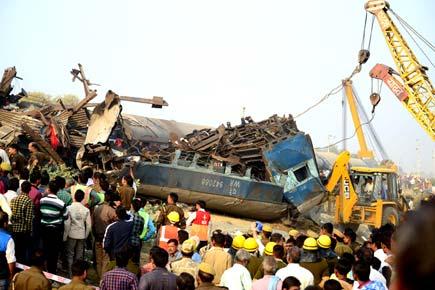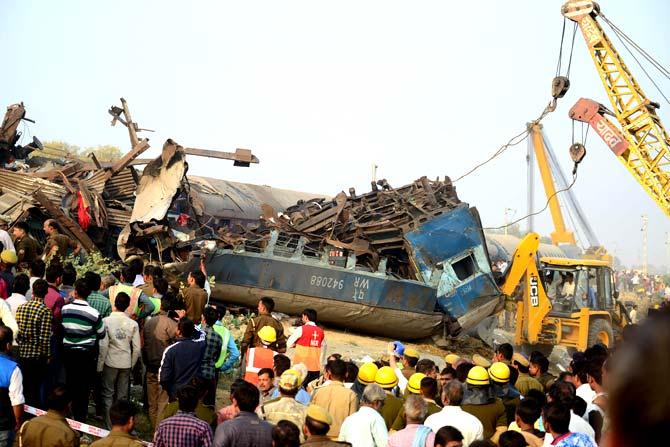Even though the cost of living and medical treatment have shot up manifold in the last two decades, the ex-gratia amount given to the kin of those killed in rail accidents has remained unchanged for the last 19 years


Indian rescue workers search for survivors in the wreckage of a train that derailed near Pukhrayan in Kanpur district. Pic/PTI
ADVERTISEMENT
Bhopal: Even though the cost of living and medical treatment have shot up manifold in the last two decades, the ex-gratia amount given to the kin of those killed in rail accidents has remained unchanged for the last 19 years.
The Rs 4-lakh ex-gratia was fixed way back in 1997, and it continues to be the norm even today. This is in sharp contrast to the previous practice of upward revision of the amount every 10 years or so. For the first time in Independent India, Rs 10,000 ex-gratia was fixed for the families of the dead in a 1962 train disaster, which was doubled in 1963.
In response to an RTI application filed by Chandrashekhar Gaur of Neemuch in Madhya Pradesh, the Railways Ministry informed that the ex-gratia amount was raised to Rs 50,000 in 1973, Rs 1 lakh in 1983, Rs 2 lakh in 1990 and made Rs 4 lakh in 1997.
Gaur made the information public as Rs 3.5 lakh ex-gratia was announced by the railway authorities on Sunday for the kin of those killed in the Indore-Patna Rajendra Nagar Express derailment at Pukhrayan near Kanpur in Uttar Pradesh. At least 120 passengers were killed in the accident. "If the previous practice of revision of ex-gratia money every 9-10 years had been followed, by now the amount would have become Rs 8 lakh," he told IANS.
On his second RTI application earlier this year, the Ministry informed him that a proposal to raise the ex-gratia amount was pending consideration of the Railway Minister. Gaur has sought an increase in the amount to Rs 25 lakh, suggesting that if Re 1 cess is imposed on every ticket, paying this much money would not be a problem for the government.
 Subscribe today by clicking the link and stay updated with the latest news!" Click here!
Subscribe today by clicking the link and stay updated with the latest news!" Click here!







